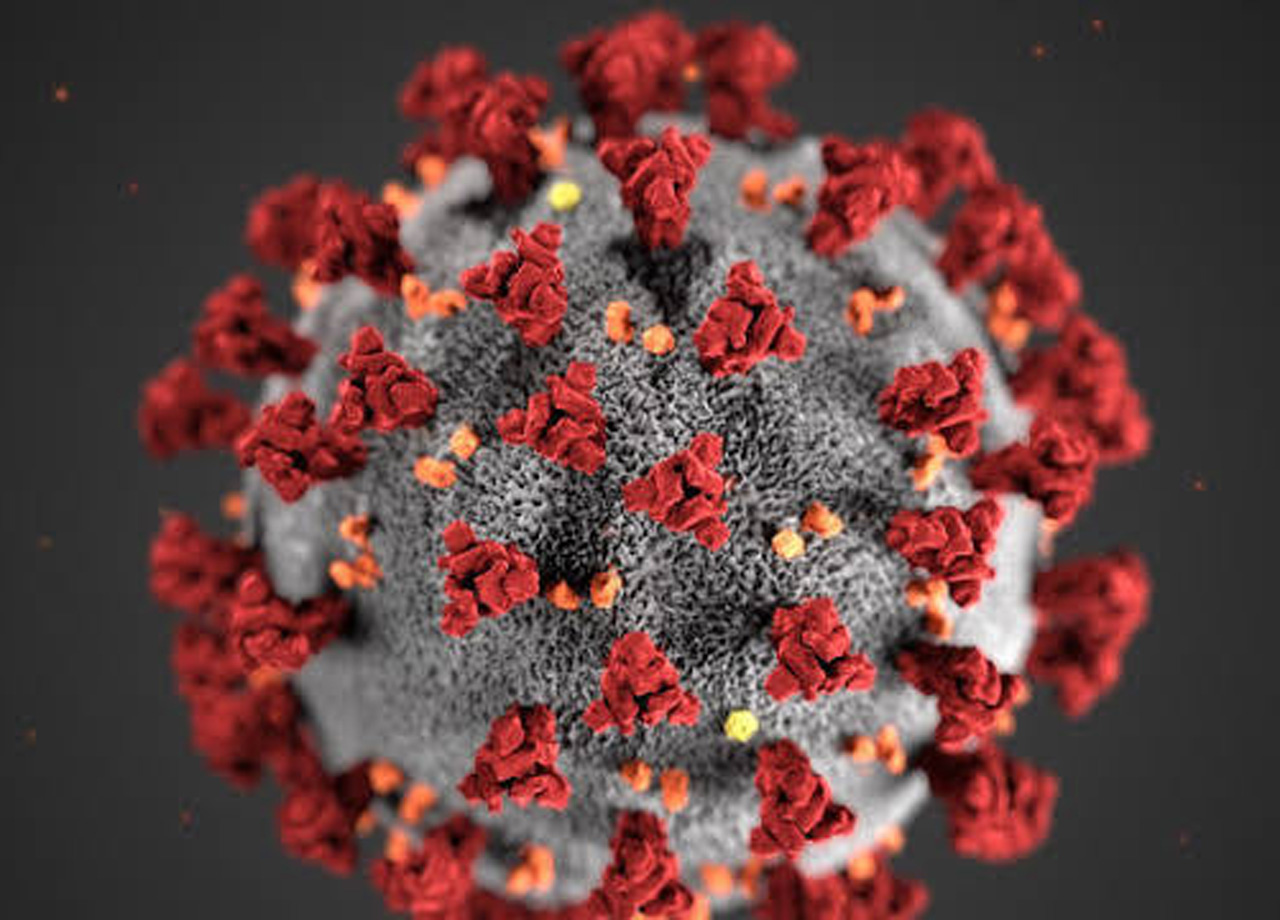Dealing with Coronavirus – Kelsey Seybold Clinic

5 Tips to Stay Ahead of Allergy Season
 By: Eric Sandberg, M.D., Allergy, Kelsey-Seybold Clinic – Clear Lake, Fort Bend Medical and Diagnostic Center, Berthelsen Main Campus
By: Eric Sandberg, M.D., Allergy, Kelsey-Seybold Clinic – Clear Lake, Fort Bend Medical and Diagnostic Center, Berthelsen Main Campus
Allergy season is in full swing, and for those who suffer from allergies, even the most beautiful spring day is diminished by the symptoms of what may seem like an endless allergy season in the Greater Houston area.
However, there are ways to make seasonal allergies less taxing on individual sufferers.
Track Pollen Reports
Keeping an eye on pollen levels is one of the keys to preparing for seasonal allergies. Many local television stations offer pollen reports as part of their weather segments. Alternatively, those seeking pollen counts may track them on smartphone weather apps or online on weather websites. Understanding the risk for exposure to allergens on any given day may help sufferers plan for outdoor activities.
Spring Cleaning
Removing dust and pollen that has already made its way into the house helps reduce exposure to allergens in the home. Dusting fan blades, windows, and light fixtures, sweeping out the garage, and maintaining a clean household helps reduce the pollen and spores that cause allergy symptoms. Cleaning out the garbage disposal, as well as other wet areas such as the shower, bathtub, or sinks, may help reduce exposure to mold spores. Lastly, changing indoor air filters may help reduce the allergens in the air. If you suffer from allergies, consider wearing a mask – and maybe even protective eye wear if the task is particularly dusty – when undertaking these cleaning projects.
Prepare for the Day Ahead
Allergens are sneaky and may ferry a ride home on hair, especially if the hair has been treated with styling products such as hairspray. For allergy sufferers who typically wear contact lenses, wearing eyeglasses instead on high pollen count days may help reduce the amount of pollen irritating the eyes.
Hygiene Habits
If an allergy sufferer spends time outside on a high-pollen-count day, showering quickly after returning home may help reduce exposure and may even help prevent the pollen stuck to clothes, shoes, and hair from transferring to furniture and home textiles like carpets and bed sheets.
Managing Anxiety in Uncertain Times
 By: Jamise Crooms, M.D., Kelsey-Seybold Clinic – Tanglewood
By: Jamise Crooms, M.D., Kelsey-Seybold Clinic – Tanglewood
Managing Anxiety in Uncertain Times
Right now, COVID-19 is on everyone’s radar. The rapidly evolving situation, combined with a torrent of media coverage, schools closing, and panic buying, is causing extreme anxiety for many. It’s important to note that stress may contribute to a weakened immune system. While none of us should ignore the COVID-19 outbreak, there are measures everyone can take to help lessen the anxiety.
How to Manage Anxiety in Your Home
It’s completely understandable if you are experiencing stress or nervousness due to the COVID-19 crisis. Nearly everyone is on heightened alert, wondering if that slight cough is just allergies or coronavirus. Uncertainty is rampant, with people unsure about whether they will have enough supplies in case of quarantine, how long schools, restaurants, and other favorite gathering places will be closed, and the potential impact on personal finances.
What You Can Do to Calm Your Nerves
Here are some things you can do to take a step back and calm your nerves:
- Avoid excessive exposure to the media coverage. There’s no denying that the news is saturated with coverage of COVID-19, from local newscasts to CDC updates and presidential messages. Even social media is plastered with posts ranging from politically divisive to flippantly comedic. Instead of constantly checking the news and social media, consider taking some time off from the media and social media. You might also consider deactivating your social media accounts temporarily, asking your friends to text, email, or call instead.
- Take time for stress relief. With the time you would normally spend online, you can practice meditation, take a walk, do some backyard yoga or other exercise, or indulge in a relaxing craft project. Relieving stress can be as simple as taking a bath or watching a comedy. It’s not only OK to make time for yourself, but it’s also necessary to manage anxiety.
- Do what you can to prepare for the worst. If you haven’t already stocked up on toilet paper, hand sanitizer, and food (which doesn’t mean hoarding or stockpiling), don’t stress. Grocery stores are restocking. But you should only need enough supplies to get through a two-week quarantine if it comes to that. Look around your house, assess what you truly need, wait for a store to restock, get what you need, and then relax.
The COVID-19 outbreak measures being taken are unprecedented in modern U.S. history. Even the calmest people may become stressed. But it’s up to each of us to do what we can to lessen anxiety, stay as healthy as possible, and practice self-care.
How to Ease Your Child’s Fears about COVID-19
 By: Debra Cutler, M.D., F.A.A.P., Pediatrician, Kelsey-Seybold Clinic – Berthelsen Main Campus
By: Debra Cutler, M.D., F.A.A.P., Pediatrician, Kelsey-Seybold Clinic – Berthelsen Main Campus
If you have children who are scared and confused about the coronavirus (or COVID-19) pandemic, there are ways you can help them manage anxiety. While there is really no way to avoid hearing about the coronavirus at this time, as a parent you want to dispel myths and provide reassurance.
Here are some tips to consider:
- Set their minds at ease. Let your kids talk about their worries and fears and then reassure them by explaining what you are doing to help protect them. If their school is closed, let them know it’s only a precautionary measure to keep them safe. Emphasize that not everyone will get the coronavirus and that there are things we may all do to help prevent getting sick.
- Give children information. Keep it simple and use words that are age-appropriate. Stick to facts and focus on the positives. Give them the opportunity to ask questions or voice fears. It’s okay to let them know you don’t have all the answers.
- Get their minds off it. Choose to receive news through alerts on your phone to help reduce the number of news stories the children in your house are exposed to. Instead, join them in playing video games or board games, camping in the backyard, or just having a good time doing something they enjoy. Fun and laughter are excellent stress relievers for little ones. For most kids, there’s no reason for them to see or hear the news, so limit or eliminate their exposure to it, and to social media.
- Make protection fun. Teach kids to sing a song while washing their hands and reward them for taking good care of themselves.
- Give reminders and practice healthy habits. Remind them to stay away from people who are coughing, sneezing, or otherwise sick. Teach and remind them to cough or sneeze into their elbow, or a tissue, and then throw the tissue into the trash and wash their hands.
Try to maintain normal routines. Sticking with a regular schedule may be reassuring. Encourage children to keep up with schoolwork. Enforce regular bedtimes. Eat meals together as a family whenever possible. Give your kids lots of affection.
How to Recover at Home from COVID-19
 By Michelle Udayamurthy, M.D., Internal Medicine, Kelsey-Seybold Clinic – Berthelsen Main Campus
By Michelle Udayamurthy, M.D., Internal Medicine, Kelsey-Seybold Clinic – Berthelsen Main Campus
Most people with COVID-19 have mild illness and should be able to recover at home. Many people diagnosed with COVID-19 may improve over time with supportive treatment to relieve symptoms. If you are ill do not leave your home except to get medical care.
Based on what we know today, COVID-19 spreads between people through respiratory droplets when they are speaking, coughing and sneezing, this is why social distancing remains important to slow the spread of the virus.
If possible, the patient recovering at home should separate and isolate themselves from others. If there are multiple restrooms in the home, using a separate bathroom from others may help prevent the spread of the virus.
It is very important to engage in a heightened level of personal hygiene and protection during this time, including more frequent hand washing [at least 20 seconds duration], try not to touch your eyes, nose or mouth with unwashed hands, more frequent cleaning and disinfecting of all surfaces touched or nearby the individual with the virus, using separate bedding and linens – and washing linens and clothing separately in hot water. Please avoid sharing household items and consider using disposable plates and utensils for eating.
When tending to an individual with COVID-19, the patient and caregiver should wear face masks and gloves for added protection. The CDC recommends that even homemade fabric masks provide some increased protection from spread.
Once isolated, supportive treatments may begin, including:
- Rest at home
- Drinking a lot of fluids to stay hydrated
- Taking over-the-counter medications for fever and muscle aches, like acetaminophen, and cough medicines as directed by your healthcare provider
If symptoms worsen, emergency medical care may be needed. Some symptoms to watch out for may include:
- Difficulty breathing
- Persistent pain or pressure in the chest
- New confusion or ability to arouse
- Blueness of the lips or face
Monitor symptoms and seek medical attention if the illness is worsening i.e. difficulty breathing. It is important to call the patient’s healthcare provider for guidance. Put on a facemask before you enter the health care facility. If a trip to the hospital by ambulance is necessary, phone and alert EMS to the coronavirus infection.
According to the CDC patients with confirmed COVID-19 should remain under home isolation precautions until the risk of secondary transmission to others is thought to be low. The decision to discontinue home isolation precautions should be made on a case-by-case basis in consultation with your health care provider.




 By: Eric Sandberg, M.D., Allergy, Kelsey-Seybold Clinic – Clear Lake, Fort Bend Medical and Diagnostic Center, Berthelsen Main Campus
By: Eric Sandberg, M.D., Allergy, Kelsey-Seybold Clinic – Clear Lake, Fort Bend Medical and Diagnostic Center, Berthelsen Main Campus By: Jamise Crooms, M.D., Kelsey-Seybold Clinic – Tanglewood
By: Jamise Crooms, M.D., Kelsey-Seybold Clinic – Tanglewood By: Debra Cutler, M.D., F.A.A.P., Pediatrician, Kelsey-Seybold Clinic – Berthelsen Main Campus
By: Debra Cutler, M.D., F.A.A.P., Pediatrician, Kelsey-Seybold Clinic – Berthelsen Main Campus
 By Michelle Udayamurthy, M.D., Internal Medicine, Kelsey-Seybold Clinic – Berthelsen Main Campus
By Michelle Udayamurthy, M.D., Internal Medicine, Kelsey-Seybold Clinic – Berthelsen Main Campus